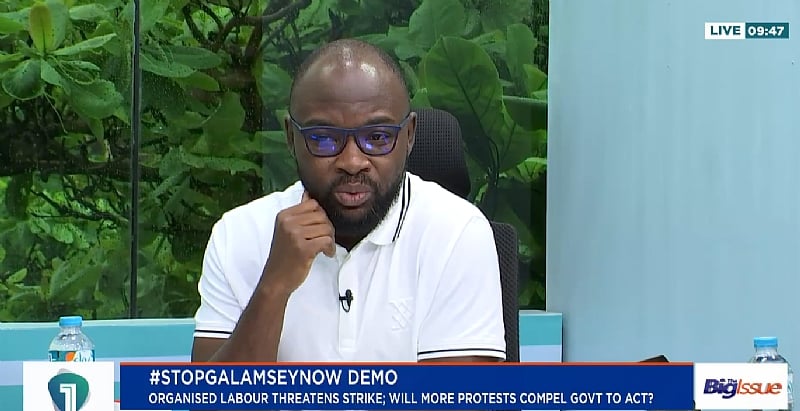Osman Ayariga, the Deputy Youth Organiser of the National Democratic Congress (NDC), has publicly criticized President Nana Addo Dankwa Akufo-Addo regarding his administration’s commitment to tackling illegal mining activities, popularly known as galamsey. Ayariga’s allegations suggest that the President and members of his party have benefitted from galamsey operations, undermining any claims of opposition to illegal mining. During an appearance on The Big Issue aired on Channel One TV, Ayariga argued that the apparent lack of genuine action against galamsey highlights a conflict of interest, as individuals in the ruling party allegedly engage in these illicit practices. This perception raises questions about the sincerity of the government’s anti-galamsey initiatives and the extent to which political affiliations might influence public policy.
In his statements, Ayariga emphasized that the involvement of party officials in galamsey activities negatively affects the credibility of the government’s attempts to address the problem. This suggests that the fight against illegal mining cannot be effectively waged when key players within the ruling party are implicated in the very activities that the government purports to combat. The pressing issue of galamsey has become a significant concern in Ghana, where it has caused grave environmental damage, undermined mining regulations, and contributed to societal unrest. Ayariga’s claims imply that the vested interests of political figures hinder true commitment to reform and enforcement, suggesting that corruption and complicity weave a complicated narrative around illegal mining operations.
Contrasting Ayariga’s assessment, Alfred Thompson, a member of the New Patriotic Party’s (NPP) Communications Team, weighed in on the discourse by advocating for collective responsibility among Ghanaians in the fight against galamsey. Thompson pointed out that the challenge posed by illegal mining extends beyond the purview of President Akufo-Addo’s administration. His call to action stresses the need for broader public engagement and unity among citizens in combating illegal mining. By framing the fight as a shared societal obligation, Thompson suggests that all stakeholders, not just government officials, must take proactive measures to address the issue, thereby distributing both accountability and responsibility across the population.
Thompson’s approach underscores a sense of communal involvement that contrasts with Ayariga’s more accusatory stance, presenting a narrative that dismisses the idea that a singular entity, such as the presidency or a political party, can bear the entire weight of resolving the galamsey crisis. His argument implies that effective action against illegal mining should encompass grassroots initiatives, collaboration between various stakeholders, and active community participation. This perspective seeks to empower citizens to become agents of change in their environments, advocating for sustainable and responsible mining practices, and fostering a collective ethos of environmental stewardship.
The debate between Ayariga’s and Thompson’s viewpoints highlights the complexities surrounding political accountability and societal responsibility in mitigating illegal mining activities in Ghana. While the opposition points fingers at the ruling party’s integrity and enforcement of legislation, government affiliates encourage a more inclusive approach that seeks to mobilize public participation. This distinction in perspectives may lead to a more layered exploration of the challenges faced in curbing illegal mining, which involves not only economic factors but also deep-rooted issues related to governance, local livelihoods, and ecological balance.
As the conversation about galamsey unfolds, it reveals a critical juncture for the nation, with implications for environmental conservation, community welfare, and political credibility. The remarks made by both Ayariga and Thompson reflect broader societal concerns regarding governance, resource management, and the role of citizens in influencing policies. For Ghana, moving forward from this impasse requires genuine dialogue, transparency from political leaders, and a unified approach that prioritizes community engagement and environmental responsibility—a challenge that remains vital for the future of the nation.
In summary, the ongoing debate surrounding illegal mining in Ghana encapsulates a significant intersection of politics and environmental stewardship. As criticism mounts against the ruling party’s sincerity in its anti-galamsey initiatives, calls for broader societal engagement highlight the necessity for a united front against this pervasive issue. The discourse between Ayariga and Thompson demonstrates the varying perspectives on accountability and responsibility, pointing towards the need for collaborative efforts in addressing the challenges presented by galamsey. Moving forward, fostering a culture of shared responsibility among citizens, alongside legitimate political action, may offer the most effective path toward resolving the complexities surrounding illegal mining in Ghana.


